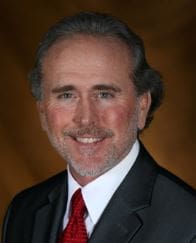

SB 61 would increase the number of personal sick days for teachers and other school employees from 3 to 5. (Pexels)
Bills that would expand the reasons and days for teachers to take days off from work divided legislators and public commenters in the Senate Education Committee Wednesday.
Senate Bill 60, sponsored by Sen. Laura Sturgeon, D-Hockessin, who is chair of the committee, would give teachers and other school employees the same protection to be absent without a loss of pay as other state employees to:
- Appear under subpoena to testify in a matter, unless they are one of the parties in the case or if the trial is directly related to that employee’s work.
- Report to serve on a jury.
The backlash came from heads of educational organizations.
“I’ve been on many juries and many jury duty assignments, and it’s usually a two week assignment,” said John Marinucci, executive director of the Delaware School Board Association.
“Two weeks out of the classroom is a long time, especially now, when we have so many needs in the classroom. Now is not the time to identify ways to help teachers not to be in a classroom.”
Tammy Croce, executive director of the Delaware Association of School Administrators, said it was unlawful for the General Assembly to rule on this subject.
“Those rules should and currently do fall under the purview of the local boards of education,” she said.
Woodbridge School District Superintendent Heath Chasanov, speaking on behalf of the 19 district superintendents, said he was against the bill for the same reason.
“It really just comes down to the fact that these are terms that are negotiated personally,” he said. “They’re items that have been negotiated into the Woodbridge contract and something that we certainly agree on, but we do believe in local authority and the ability of school districts to have these discussions with our local association.”
Despite the objections, the bill was released by the committee and heads to the Senate floor on a vote of two yes and four on its merits. A vote for on its merits indicates the legislator thought the issue should be debated, but didn’t want to be on the record supporting the bill.
Interested parties had to wait until the votes were posted on the General Assembly’s site to see what happened because the Senate doesn’t take votes in public.
The second bill that drew debate was Senate Bill 61, also sponsored by Sturgeon.
It would increase the amount of sick days school employees can take each year for personal reasons from three to five.
It also allows a school employee to use the one day of leave provided for the funeral of a near relative on the day before or the day after the funeral.
Sturgeon pointed out that this would not be an additional day off, but rather an alternative choice to allow for teachers to have flexibility in the event that a relative has died.
If enacted, a chief school officer would not be allowed to ask a school employee the reason they are requesting to be absent for personal reasons. Teachers’ requests could only be denied because of operational requirements.
Sen. Eric Buckson, R-Dover, said he was opposed to the bill.
“When you have folks out of the classroom, yes, you have to have substitute teachers,” he said. “If the substitute teachers aren’t there, yes, you have other teachers that have to then cover the classrooms.”
Even when substitute teachers are available, Buckson said they’re not qualified in the same manner that an actual certified teacher is, which could lead to learning loss.
“The five days extends and exaggerates [time off] at a time when we do not need it,” he said. “We need to be focused on teachers in the classroom.”
He said the bill would have a negative ripple effect and legislators need to listen to the public commenters who have skin in the game.
The bill was released by the committee with six favorable votes and heads to the Senate floor.
Also Wednesday:
- House Bill 45, sponsored by Rep. Kim Williams, D-Marshallton, who is chair of the House Education Committee, allows parents to decline developmental screenings, which are in part used to identify special needs or disabilities a child may have. The bill also requires parental consent for any screenings to be conducted. The vote was four favorable and four on its merits.
- House Joint Resolution 1, sponsored by Williams, passed to the Senate floor. It would establish a 17-person task force to focus on mentoring and improving literacy rates for Delaware’s youth. The task force will mainstream public school mentoring systems, expand the number of mentors and improve the use of information technology to make improvements to recruitment, training and retention of mentors. All eight senators voted for it on its merits.
- House Bill 33, sponsored by Williams, was released. It would increase funding for preschool students with disabilities by revising the current ratio of 12.8 students per education unit to 8.4 students per unit for preschoolers three years and older. That ratio is consistent with kindergarten through twelfth grade funding for special education students. If made law, it would go into effect July 1, 2023. The bill will stop in the Senate Finance Committee for another vote because it involves $4,014,344 in state funding for Fiscal Year 2024. The vote was six favorable and two on its merits.


Raised in Doylestown, Pennsylvania, Jarek earned a B.A. in journalism and a B.A. in political science from Temple University in 2021. After running CNN’s Michael Smerconish’s YouTube channel, Jarek became a reporter for the Bucks County Herald before joining Delaware LIVE News.
Jarek can be reached by email at [email protected] or by phone at (215) 450-9982. Follow him on Twitter @jarekrutz and on LinkedIn
Share this Post












